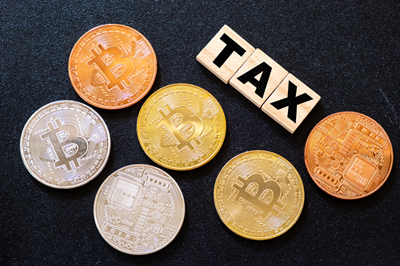
Countless customers as well as investors have grown to be more and more curious about decentralized financing, and DeFi. These solutions get rid of the middleman and also let you borrow, lend as well as trade fast and at a reduced price.
These opportunities are progressively expanding as crypto is continuing to weaken traditional financial services. You will notice tax implications which affect the return on investment of these lending actions. The great thing is it is possible to lower or perhaps get rid of these liabilities in many manners. For more information you can visit bitcoin loophole.
What is DeFi Crypto Tax?
Decentralized finance or DeFi is a subset of cryptocurrency centred on enabling access to economic services like trading, borrowing and lending with no delays or maybe additional expenses experienced by a middleman, like conventional financial institutions. To offer decentralized trading, it additionally makes use of automatic market making (AMM) as well as liquidity pools.
What are the tips for reducing DeFi tax liability?
-
Tax payments should be set aside in dollars
Numerous DeFi platforms matter governance or perhaps incentive tokens for exercise all over their platform. These coins, in some instances, stand for a significant part of the earnings from yield agriculture, particularly when lending yields are low. These tokens are generally taxed at their actual market value as typical income, meaning you are going to be responsible for tax even though you don’t sell them.
The dreadful thing that could occur would be that the worth of the tokens drops to fifty dollars, rather than a hundred dollars. You are going to pay standard income tax after tax on the initial value of a hundred USD and not on the present value of fifty USD. You can offset a little bit of the tax risk by offering the tokens for a loss, though it is additionally advisable to put aside the taxes in the money that you owe.
- Keep an eye on your gas fees
The majority of DeFi platforms are founded on Ethereum, meaning that transactions are governed by charges or maybe gasoline charges to compensate owners for the computing power needed to verify transactions on the blockchain. When yield farming gets to be more sought after, these charges are generally passed along to DeFi users.
Gas charges may lessen your taxable income, however, they could be deducted from the proceeds of a transaction because they can lower your profit margins. In case you purchase one ETH for 500 USD and also subtract five USD for gasoline, the taxable length will be only 495 USD. The savings in gasoline taxes will add up as time passes and you wouldn’t need to spend tax on the $5 found transaction charges.
-
Utilise Liquidity Pool Tokens (LPTs)
It is simple to transfer your income from interest to the crypto balance on numerous DeFi lending internet sites. You may lend ETH to somebody and then get it with your wallet as payment, for instance. Generally, these earnings are taxed as regular income, given that lending’s not viewed as an investment activity which is subject to capital gains tax. However, more recent DeFi lending marketplaces generate their very own Tokens for lenders referred to as Liquidity Pool tokens or LPTs.
- Utilise DeFi Crypto Tax Software
Every year, crypto traders as well as investors generate a huge number of trades. Their tax situations get even more complex when DeFi is included in the mix. The good thing would be that the DeFi crypto tax program will instantly aggregate your trades across exchanges and also compute your capital gain or maybe loss for the entire year.